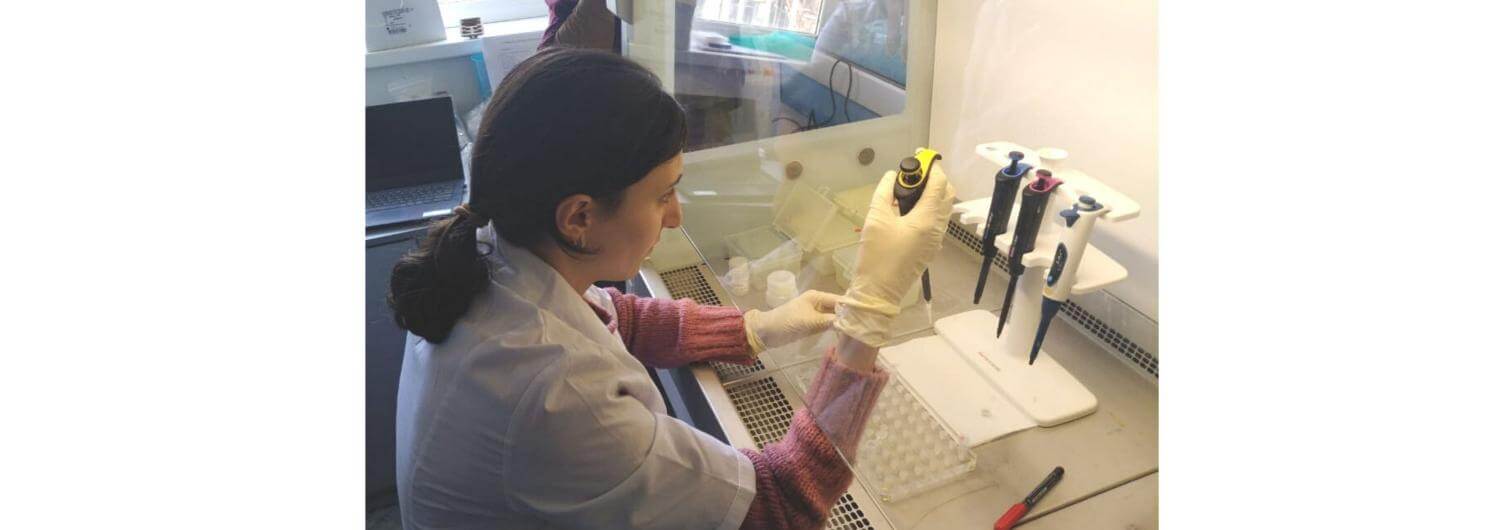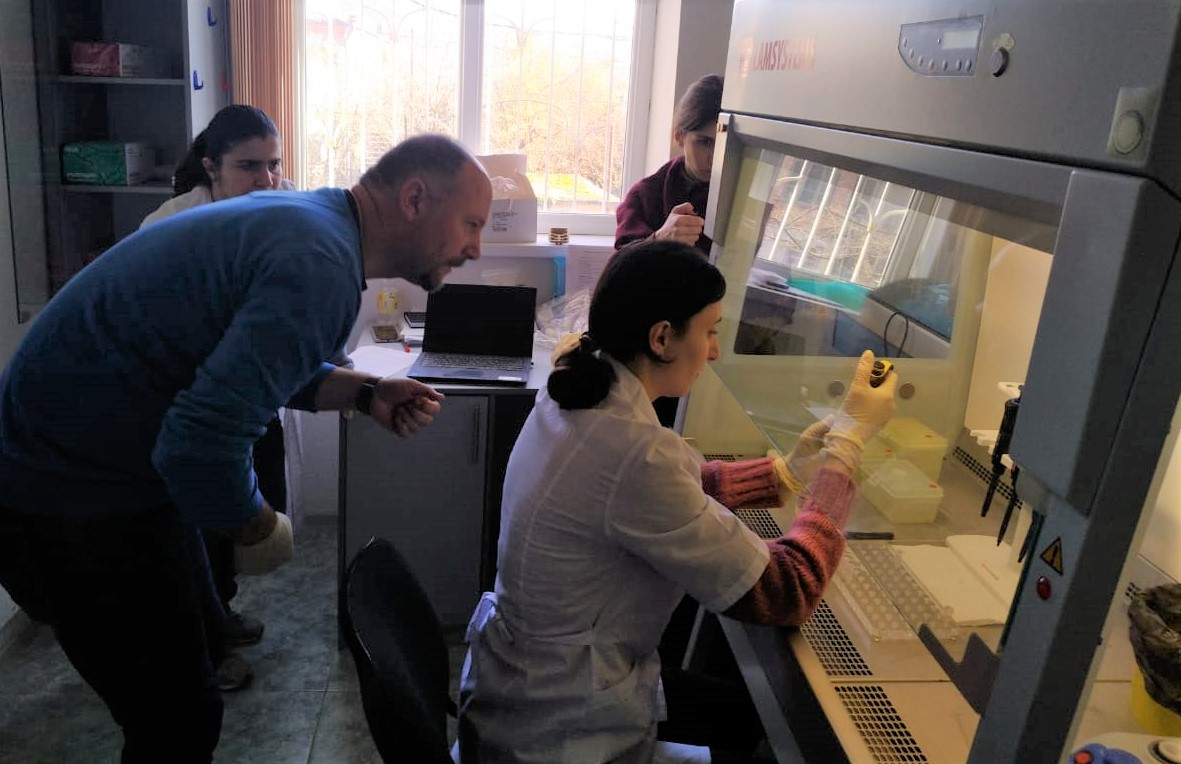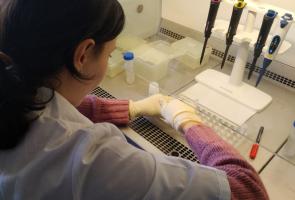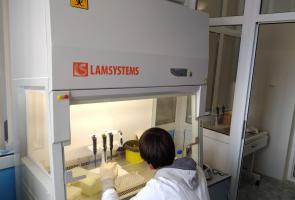News
Veterinary lab equipped and ready for disease detection
27/03/20

Over the past two years, within the framework of the Austrian Development Cooperation (ADC)-funded project, “Promoting integrated approaches to animal health and plant protection in Abkhazia”, Action Against Hunger (AAH) has been supporting the Veterinary Service Department (VSD) in Abkhazia to increase its technical capacity and improve its preventative and diagnostic capabilities against the spread of disease.
An outbreak of Lumpy Skin Disease (Nodular Dermatitis) among cattle in 2017, highlighted the urgent need for the department to increase its diagnostic abilities so as to inform its control measures and vaccination campaigns. A major concern is also the risk posed by zoonotic diseases – those that can be transferred from animal to humans such as rabies and brucellosis – and the ability to perform fast and accurate diagnosis is crucial in responding to such diseases.
In 2018, at the request of VSD, AAH had provided the Veterinary Laboratory in Sukhumi with a Polymerase Chain Reaction (PCR) machine through another project, that is used in molecular biology and allows the detection of pathogens. While a serological method (blood test) merely shows that there has been contact with a virus or bacteria through the presence of specific antibodies, it does not tell if the infection is present or not. PCR does just this by detecting the presence of an actual virus or bacteria in a tested sample. For the confirmation of rabies, where human incidences are still relatively high in Abkhazia, this diagnostic capacity is of vital importance. In addition, the method can be used for the diagnosis of numerus other infectious diseases affecting humans and animals, including Tuberculosis (TB), Brucellosis, Avian Influenza (bird flu) and Anthrax, as well as for testing for Coronavirus.
To further increase its operational capacity, at the end of 2019, AAH procured more specialised equipment for the VSD Laboratory with funding from ADC. This support was then supplemented in March 2020 with a two-week training course delivered to laboratory technicians by a veterinary expert in molecular diagnostics, Dr Igor Djadjovski, of the Faculty of Veterinary Medicine, Skopje, North Macedonia. Dr Djadjovski, who has supported the laboratory for the past two years, was able to advise and train VSD Laboratory technicians on the installation and operation of the new equipment, as well as provide training on laboratory management and ensuring high-quality assessment practices. According to Dr. Djadjovski, the VSD staff are a “highly motivated and attentive group who have shown good aptitude for mastering these techniques … they have been independently running protocols for eight diseases we introduced in the lab, reaching the same results as myself”. 
The ADC-funded project started in early 2018 and aims to improve the quality of services provided by the VSD and the Plant Protection Department in Abkhazia. Both institutions are crucial in a place where a large share of the rural population relies heavily on agriculture for their household income. As well as the PCR training programme, and the construction of a Veterinary Service Centre in Gulripshi, the project has supported the VSD to increase their technical and institutional knowledge in animal health through the engagement of international consultant experts and through study tours to meet veterinary experts in other countries in Europe.

